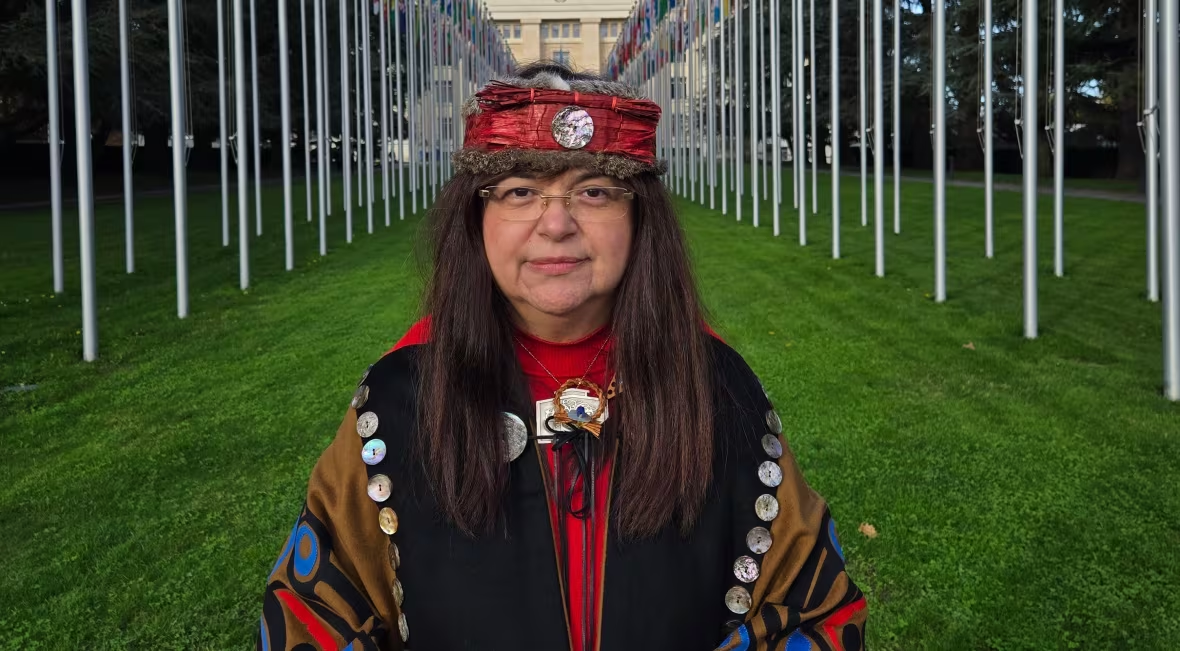
For 80-year-old Hilistis Pauline Waterfall, seeing the Heiltsuk Nation adopt a written constitution would be a “dream come true.”
Waterfall was taken to residential school at age 12, she says and had to spend years relearning her culture, language and history.
Now a knowledge-keeper and Order of B.C. recipient, she is one of the people who drew on her learnings to help shape the new constitution, which is being voted on by members of the Heiltsuk First Nation on British Columbia’s Central Coast.
A statement from the nation says the historic referendum follows nearly two decades of development and consultation, including six months of engagement with more than 2,000 Heiltsuk members in Bella Bella, Nanaimo and Vancouver.
If approved, it says the constitution will help the nation “reclaim its power.”
“Prior to [colonization], we had a really vibrant infrastructure that included our oral constitution,” Waterfall said in an interview with CBC Radio West host Sarah Penton.
“We had a justice system where we had our own laws… built by consensus. Everybody, even children, knew what their roles and responsibility were.”

Much of this was wiped out, she said, by the imposition of the Indian Act and the outlawing of those cultural traditions.
But, she said, “we’re now at a place” for it to be restored.
Marilyn Slett, elected Chief of the Heiltsuk, says the nation is proud of the work that has gone into “reconstituting” its governance system with the written constitution, which lays out a legal framework for Heiltsuk governance, rights, responsibilities and law-making.
The statement says the constitution would help provide clarity for the nation and those it chooses to do business with, clearing up questions around decision-making in Heiltsuk territory that had previously been left to the courts.
It says the constitution also enshrines collaboration between elected Heiltsuk officials and ancient forms of governance, such as hereditary chiefs.

“We have never ceded, surrendered or extinguished our inherent right to govern the Hailzaqv people and our [territory],” hereditary chief Frank Brown says.
The written constitution reflects the nation’s “paramount values,” he says. “It is intended to support and guide current and future generations in the governance of our nation, and we eagerly await the outcome of this historic referendum.”
Other nations to adopt written constitutions include the Nisga’a Lisims and Haida, both of which have taken control over much of their self-government including education systems, child care and management of natural resources.
Waterfall says just as in the past, much of the constitution is focused on the role of consensus-building when it comes to making decisions.
“Everybody would come together and talk about it until we came to a foundational understanding,” she said of the past. “That process is embedded in our constitution.”
Also key, she said, is the importance of women in the community for building and reinforcing traditional laws.
The Heiltsuk Nation’s membership received voting packages on Jan. 6.
Voting opened Thursday and it’s set to continue until Feb. 20, says the statement issued Thursday.
If it is approved by a majority of members, the statement says a ratification feast will be held in Bella Bella before the constitution takes effect.
“This dream that I have had will become a reality,” said Waterfall. “I will have truly come full circle.”




